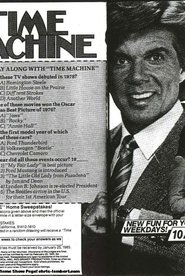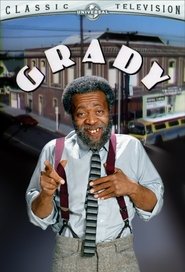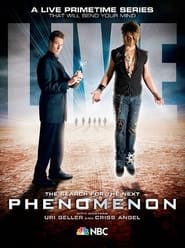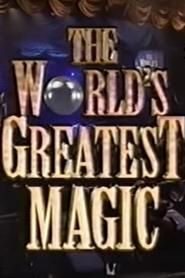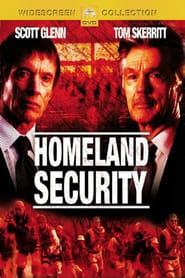Nbc TV Series - Page 72
-
Dress Gray
1986
star 5.4When a cadet at a military academy is found dead, the assumption is it was an accident. But the autopsy reveals that's not the case and that he's a homosexual and the last person he was with someone before he died and that someone is an academy upperclassman. The commandant wanting to protect the academy's good name tries to keep it quiet and hopefully no one will care about it. But the cadet comes from a prominent family and his father knows it couldn't have been an accident. And his sister knows one of the upper class men who knew his brother. And he learns the truth of her brother's death when he spoke to the academy doctor. Later when the commandant learns of this he orders the man brought to him and tells him to forget what he learned. But he sets out to find out the truth. At the same time the commandant gets some info that might implicate him. -
Crisis Center
1997
star 2Crisis Center is an American drama television series that aired from February 28 until April 4, 1997. -
Time Machine
1985
Time Machine
1985
Time Machine is an American game show where contestants compete to answer trivia questions about popular culture and recent history to win prizes. The show aired on NBC from January 7 through April 26, 1985 and was hosted by John Davidson. Charlie Tuna was the announcer, with Rich Jeffries as his substitute. Reg Grundy Productions produced the series, and upon its premiere Time Machine was one of three Grundy series airing on NBC. Most of the questions used focused on nostalgia, popular culture, and recent history, and more specifically what year a particular event occurred. Future Card Sharks model Suzanna Williams appeared as one of the prize models in this series. -
Grady
1975
star 5Grady is an spin-off of the sitcom, Sanford and Son. In this series, Fred Sanford's widower friend Grady moves out of Watts and moves in with his daughter and her family in Westwood. Executive producer Norman Lear served as a consultant to the show. Redd Foxx made a special guest appearance as Fred Sanford in the second episode. The series never found a solid audience, and was canceled after just ten episodes. Whitman Mayo returned to Sanford and Son and would go on to star in the revival series The Sanford Arms. -
Snap Judgment
1967
Snap Judgment
1967
Snap Judgment is an American daytime game show hosted by Ed McMahon and announced by Johnny Olson which ran on NBC from April 11, 1967 to March 28, 1969 at 10:00 AM Eastern. The program was produced by Mark Goodson and Bill Todman. The series aired during an eight-year period in which the network aired a five-minute newscast at 10:25 AM; the exception during this time was from June 1964 to March 1965, when the slot had daytime repeats of the long-running sitcom Make Room For Daddy. -
Phenomenon
2007
star 1.5Phenomenon was a competition show judged by mystifier Uri Geller and illusionist Criss Angel and hosted by Tim Vincent which debuted live on Wednesday, October 24, 2007 on NBC. The show featured ten contestants competing to become the next great mentalist, to be determined by viewers voting by phone and online. The contestants performed their effects on celebrity guests each week. The winner of Phenomenon would win $250,000. On October 30, 2007, during an interview with Larry King about the show, Angel said "No one has the ability, that I'm aware of, to do anything supernatural, psychic, talk to the dead. And that was what I said I was going to do with Phenomenon. If somebody goes on that show and claims to have supernatural psychic ability, I'm going to bust them live and on television." The winner of the first season was Mike Super. The series was cancelled on April 2, 2008, after NBC announced its 2008–2009 schedule. -
The American Frontier
0000
The American Frontier is a series of short videos, hosted by Charlie Jones and Merlin Olsen, depicting the colorful legends and history of the Old West, as well as its important characters and events. -
McCoy
1975
star 5McCoy is an American comedy/drama series that aired on NBC during the 1975-1976 season. -
High-Low
1957
High-Low
1957
High Low was an American game show that aired on NBC from July 4 to September 19, 1957. The series was a summer replacement for the popular variety show The Ford Show. Jack Barry was the emcee and Don Pardo was the announcer. -
The Gisele MacKenzie Show
1957
The Gisele MacKenzie Show in an American variety show hosted by Gisele MacKenzie. The series aired live on NBC from September 28, 1957, to March 29, 1958. The Curfew Kids appeared on the program as semi-regulars. MacKenzie had been a regular on the earlier NBC musical series Your Hit Parade from 1953 to 1957. She had also worked in radio with Bob Crosby and had toured with Jack Benny and guest starred on The Jack Benny Program. Benny in fact had recommended her to the producers of Your Hit Parade. -
The World's Greatest Magic
1994
The World's Greatest Magic was a series of American television specials showcasing magic acts. The first of five shows was broadcast by NBC in 1994, and continued with annual editions through 1998. These shows were most often first telecast during the Thanksgiving holidays when special programming would occur. These specials reran occasionally on ABC Family from October 1996 to early 2002. The first episode was hosted by Robert Urich, the second by Alan Thicke, and the final three episodes by John Ritter. Before each commercial break of every episode, in a segment known as the Mac King School of Magic, Mac King showed viewers a simple magic trick, and would break its steps down after the commercial break so that the audience could perform the same trick for family and friends. Here's a list of the closing illusions for each of the five shows, and the magicians that performed them: ⁕World's Greatest Magic I: Franz Harary - Space Shuttle vanish ⁕World's Greatest Magic II: Penn and Teller - Magic bulle -
Skunked TV
2004
Skunked TV
2004
Skunked TV is a children's television prank show on Discovery Kids. On this show, children are pranked by seeing animals do weird things. The host is Madai Zaldivar and the co-host is Chuck Cureau. The series ran in 2004 but canceled after one season of 15 episodes. According to TV.com it is on a hiatus. -
Camel News Caravan
1948
star 6The Camel News Caravan was a 15-minute American television news program aired by NBC News from February 14, 1949, to October 26, 1956. Sponsored by the Camel cigarette brand and anchored by John Cameron Swayze, it was the first NBC news program to use NBC filmed news stories rather than movie newsreels. On February 16, 1954, the Camel News Caravan became the first news program broadcast in color, making use of 16mm color film. In early 1955, the R.J. Reynolds Tobacco Company, maker of Camel cigarettes, cut back its sponsorship to three days a week. Chrysler's Plymouth division sponsored the other days, and on those days, the program was labelled the Plymouth News Caravan. The program featured a young Washington correspondent named David Brinkley, and competed against Douglas Edwards with the News on rival CBS. With greater resources, the News Caravan attracted a larger audience than its CBS competition until 1955. Launched on February 16, 1948, by NBC as NBC Television Newsreel, and later Camel Newsreel Theatre it -
Remember this Date
1950
Remember this Date
1950
Remmember This Date is an American game show that aired on NBC from November 14, 1950 to June 28, 1951. The program is most notable for being the first daytime game show. -
Wrangler
1960
star 5Wrangler is an American Western television series starring Jason Evers that aired on the NBC television network from August 4 to September 15, 1960. In Wrangler, Evers played Pitcairn, a wrangler who roamed the Old West, finding adventures along the way. However, Wrangler did not have much of a chance to find adventure because the series lasted only for six episodes. It was a summer replacement series for The Ford Show Starring Tennessee Ernie Ford, but did not garner high enough ratings to become a full-fledged series. Guest stars included Tyler McVey in the episode "Incident at the Bar M". Three years after Wrangler, Evers landed the lead in the 26-episode ABC drama Channing set on a fictitious college campus. -
Television Parts
1985
star 5Michael Nesmith in Television Parts is a summer TV series run by NBC in 1985. It was a 30-minute comedy-variety series created by Michael Nesmith as a continuation of his Grammy Award-winning video production Elephant Parts, and earlier series PopClips. The first episode was a stand-alone television special which aired on March 7, 1985. The following series premiered on June 14, 1985. The show was a mix of music videos mixed in with comedy sketches, commercial parodies, and general silliness. It was hosted by Nesmith himself, who also participated in many of the sketches. Television Parts also featured guest appearances by a number of comedians, including Martin Mull, Whoopi Goldberg, Jay Leno, Jerry Seinfeld, Bill Martin, The Funny Boys and Garry Shandling, whose appearance on the show was the seed for It's Garry Shandling's Show. One of the show's featured pieces, "Deep Thoughts by Jack Handey" was later picked up by Saturday Night Live. The show was cancelled after one short summer season that same year. It wo -
Jacobo Timerman: Prisoner Without a Name, Cell Without a Number
1983
Jacobo Timerman: Prisoner Without a Name, Cell Without a Number is a TV movie centering on the story of Argentine newspaper publisher Jacobo Timerman's experiences and torture in a secret prison. -
My Dad Is Better Than Your Dad
2008
My Dad Is Better Than Your Dad is a reality sports TV show on NBC that premiered on February 18, 2008. The show is produced by Mark Burnett, producer of other shows like Survivor, The Apprentice, and Are You Smarter Than a 5th Grader?, and was hosted by actor Dan Cortese. Four teams of kids and their fathers compete in each episode, with the winning team having the chance to win up to $50,000. It replaced American Gladiators in its Monday 8 p.m. timeslot. The series was cancelled on April 2, 2008 after NBC announced its 2008-2009 schedule. -
The Restaurant
2003
star 10The Restaurant is a reality television series that aired on NBC in 2003, with a second season broadcasting in 2004. The series had encore presentations on CNBC and Bravo. Celebrity chef Rocco DiSpirito opened the Gramercy Park, New York City, restaurant Union Pacific in August, 1997. The NBC series, it was announced, would follow DiSpirito as he launched and operated a new Manhattan restaurant. The first season revolved around the construction and opening of Rocco's on 22nd, scheduled to open in five weeks. Some 7.5 million viewers tuned in for the July 20, 2003 premiere focusing on the search for a location and construction work for the new restaurant. Among the 2000 people who showed up hoping to be hired were various actors, models and show business hopefuls. In addition to Rocco's mother, Nicolina DiSpirito, known for her famous meatballs, the show's on-camera personnel included David Miller, Alex Corrado, Domiziano Arcangeli, Heather Kristin, Natalie Norman, Topher Goodman, Lisa Wurzel, Brian Allen, Gideon H -
Homeland Security
2004
Homeland Security
2004
Homeland Security is a 2004 made-for-TV film, which was intended as a pilot for a series which never materialized.


